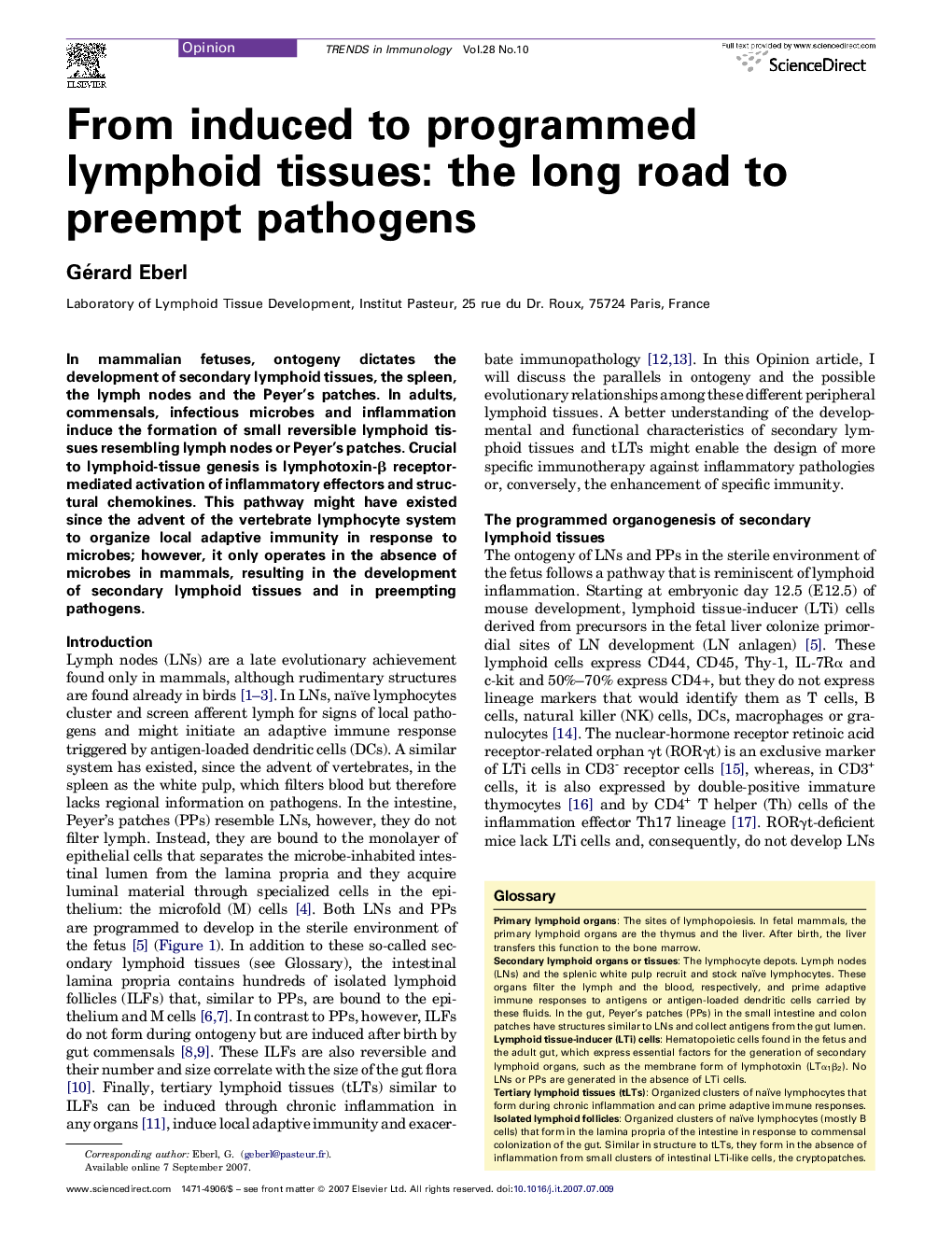| Article ID | Journal | Published Year | Pages | File Type |
|---|---|---|---|---|
| 4360658 | Trends in Immunology | 2007 | 6 Pages |
Abstract
In mammalian fetuses, ontogeny dictates the development of secondary lymphoid tissues, the spleen, the lymph nodes and the Peyer's patches. In adults, commensals, infectious microbes and inflammation induce the formation of small reversible lymphoid tissues resembling lymph nodes or Peyer's patches. Crucial to lymphoid-tissue genesis is lymphotoxin-β receptor-mediated activation of inflammatory effectors and structural chemokines. This pathway might have existed since the advent of the vertebrate lymphocyte system to organize local adaptive immunity in response to microbes; however, it only operates in the absence of microbes in mammals, resulting in the development of secondary lymphoid tissues and in preempting pathogens.
Related Topics
Life Sciences
Immunology and Microbiology
Immunology
Authors
Gérard Eberl,
